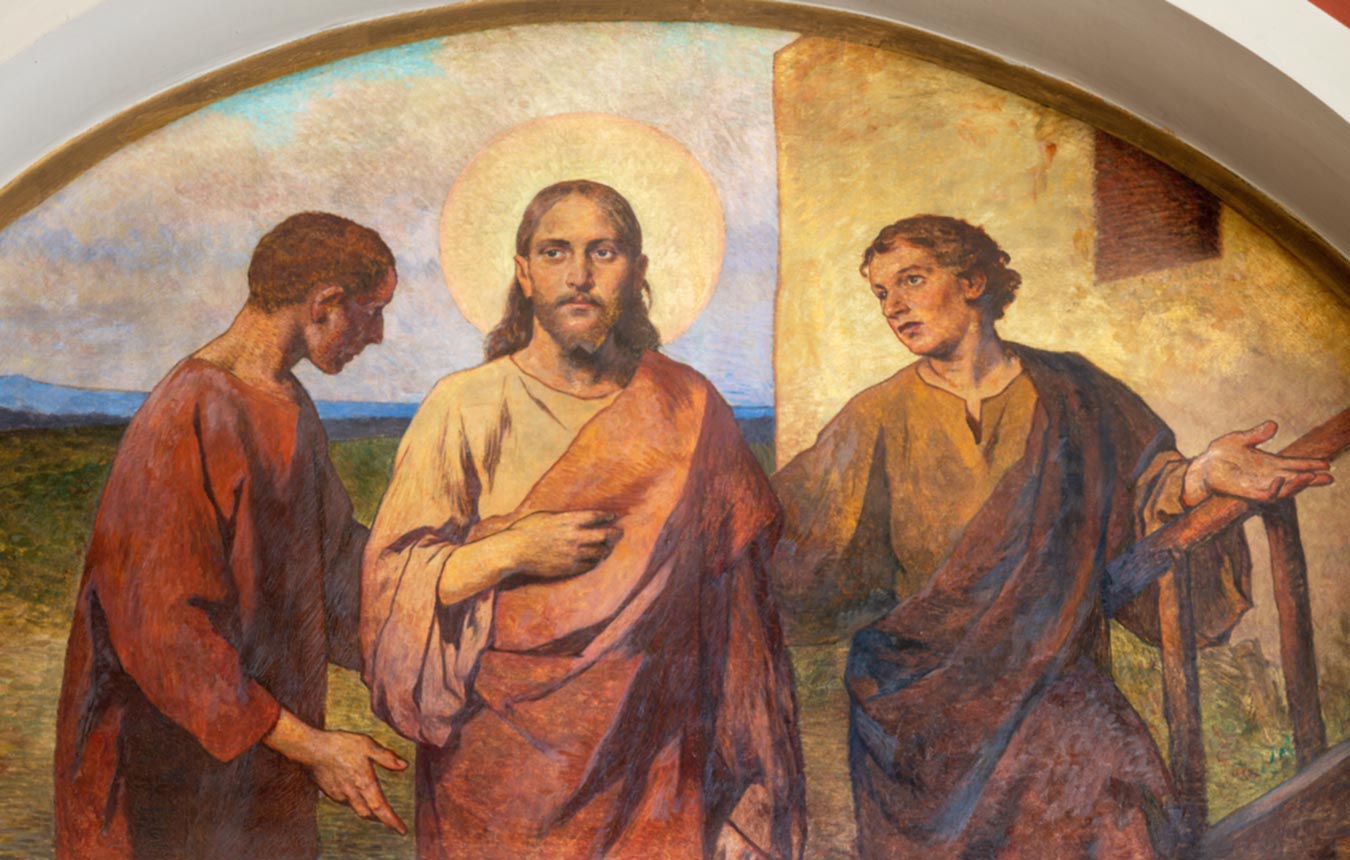
Concordia Seminary Newsroom
Learning from the disciples

by Rev. Tom Schlund
One of the coolest parts of my job as an admissions officer is getting to talk with prospective students and hearing about their journey to Concordia Seminary. I always try to ask a similar question in our initial conversation and it usually is something like, “Tell me about you and your interest in the Seminary.”
I love to hear about the factors that influence a person to consider coming to Concordia Seminary and dedicating their lives to serving God through service to the church and world. Everyone has a unique story. Some stories are shorter and mostly a straight line, while other stories are longer with more twists and turns. Yet, almost without fail, every story includes one common element: Someone encouraged the person to consider church work.
I’m glad I’m not the only one who gets to hear some of these stories because they can be great encouragement as you discern God’s calling in your life. You too can hear people describing their path to ministry on our podcast, “Under the Fig Tree.” On each episode, the hosts (Associate Provost Dr. Benjamin Haupt and Director of Recruitment Rev. Micah Glenn) ask their guests to share the story of how they got into church work. Hearing about how some of our faculty, staff, students and other guests arrived at Concordia Seminary can be helpful in realizing that you’re not alone with the things that you’re considering.
As I was thinking about the ways that we learn from others on the journey to church work, I also was reminded of Jesus’ disciples and their path to following Jesus. They were turned loose as witnesses to God’s redemptive work for the world through Jesus’ life, death and resurrection. Each of Jesus’ disciples had a different path to following Him. Some were following John the Baptist. Some were working other jobs. At least one, Matthew, was in a profession that wouldn’t even be considered conducive for following Jesus.
Each of Jesus’ disciples share something in common with you and me and everyone else who has been called into church work. What we share in common is that none of us has come to this point on our own. None of us comes to saving faith in Jesus by our own reason or strength, and none of us comes into the role of pastor or deaconess on our own. For the disciples it was the words out of Jesus’ own mouth, “Come follow me.” For the rest of us, it’s a faithful elderly woman in your congregation, an elder, a Sunday school teacher, grandparent, pastor or friend who says, “You’d make a good pastor” or “You’d be a great deaconess” or “Have you ever thought about church work?”
As Lutherans we strongly believe that God works through physical means. He does this for our comfort, confidence and assurance. If we were solely reliant on a strong feeling, a lightning bolt, the appearance of an angel or some other supernatural event, we’d never be totally confident in any of God’s promises for us because we don’t typically experience those things. Instead, God combines His Word and promises with simple things — bread, wine, water, sinful pastors — and provides for us His body and blood, Baptism into His family, and Absolution for our sins. In the same way He uses faithful members of the Body of Christ to encourage us along the path toward ministry.
So, if you’ve had one or more people tell you that you should consider being a pastor or a deaconess, don’t brush them off and think that they’re just being nice. Take comfort in that encouragement that they have recognized gifts from God in you that could be used in service toward others. While that certainly isn’t the only deciding factor in applying or being admitted to the Seminary, it is certainly an important one.
While it would be nice if each of us could hear Jesus’ voice audibly telling us to “Come follow me” like the first disciples, we can take heart in the fact that Jesus now uses His church to help us discern this path toward serving Him.
Rev. Tom Schlund is an admissions officer at Concordia Seminary, St. Louis.